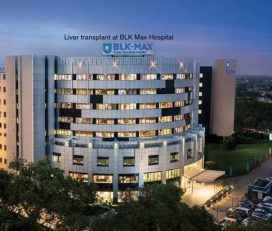
Dr. Bipin Walia – Best Neurosurgeon
In the realm of medical marvels, there are a few individuals whose expertise and groundbreaking work shine like beacons of hope. Among them stands Prof. (Col.) Dr. Bipin Walia, the esteemed Vice Chairman and Head of Neurosurgery at Max Super Specialty Hospital, Saket. With over 41 years of experience in the field, Dr. Walia has earned a reputation as a top neurosurgeon, transforming lives and pushing the boundaries of medical science. Join us as we delve into the remarkable journey and achievements of this exceptional physician, whose dedication and skill have brought hope and healing to countless patients.
What educational background makes Dr. Bipin Walia a true neurosurgical maestro?
Dr. Bipin Walia’s relentless pursuit of knowledge and excellence began with his MBBS and MS (General Surgery) degrees from the prestigious Armed Forces Medical College, Pune. His thirst for specialization led him to complete his M.Ch (Neurosurgery) at the renowned All India Institute of Medical Sciences, New Delhi. Not one to rest on his laurels, Dr. Walia has also participated in numerous national and international courses and workshops to hone his skills in specialized areas of neurosurgery.
How has Dr. Bipin Walia’s extensive experience shaped his expertise?
With over two decades of rich experience in the field of neurosurgery, Dr. Bipin Walia has accumulated a wealth of practical knowledge and expertise. His remarkable accomplishments include pioneering motion-preserving surgeries, particularly disc replacement surgery. This revolutionary technique has offered patients an alternative to traditional spinal fusion, allowing for better mobility and improved quality of life. As a testament to his proficiency, Dr. Walia has been recognized as a postgraduate teacher by the National Board of Examinations for MS (General Surgery) at the Universities of Delhi and Pune, as well as for DNB (Neurosurgery).
What professional memberships does Dr. Bipin Walia hold?
Dr. Bipin Walia’s commitment to staying at the forefront of neurosurgical advancements is evident through his memberships in prestigious organizations. He holds memberships in the Asian Congress of Neurological Surgeons (FACNS), the Congress of Neurological Surgeons, & the American Association of Neurological Surgeons. Furthermore, he serves as a faculty member for the Spinal Science Advancement Foundation and the Musculo-Skeletal Research Institute, showcasing his dedication to the advancement of spinal healthcare.
What are Dr. Bipin Walia’s areas of specialization and interest?
Dr. Bipin Walia’s vast expertise extends to various facets of neurosurgery, with a focus on spinal surgeries. He is highly skilled in performing complex procedures such as scoliosis surgery, spinal deformity correction, and minimally invasive spine surgery. Dr. Walia also excels in treating spinal tumors, employing his knowledge of minimal access spinal surgery, endoscopic disc surgery, and spinal instrumentation. His repertoire includes functional neurosurgery, stereotactic neurosurgery, neuro critical care, and stroke management, further solidifying his position as a well-rounded and accomplished neurosurgeon.
What notable awards has Dr. Bipin Walia received?
Dr. Bipin Walia’s contributions to the field of neurosurgery have been recognized with several prestigious awards. His expertise in image-guided surgery, disc replacement, endoscopic cranial surgery, and brain tumor surgery has garnered admiration from colleagues and patients alike. Notably, Dr. Walia has made significant strides in advancing the field of minimally invasive surgery for spinal tumors, demonstrating his unwavering commitment to improving patient outcomes.










